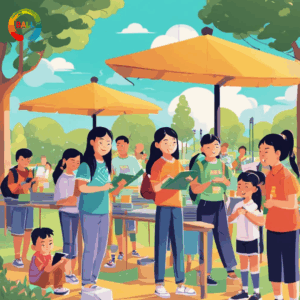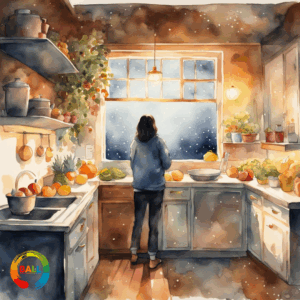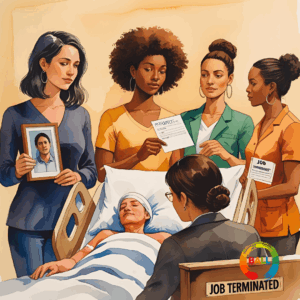Minnesota is home to about 144,300 Asian/Pacific Islanders. These includes ethnicities such as Asian Indians, Bhutanese, Cambodians, Hmong, Karen and Vietnamese. Many Asian/Pacific Islanders has or had family members born outside of the U.S. that has immigrated to Minnesota.
Language:
Some Asian/Pacific Islanders can fluently speak English, but English may not be their first language. Asian/Pacific islanders may have the ability to speak one or more different languages.
Most Commonly Spoken Language(s) (besides english):
| Ethnicity: | Language: |
| Asian Indians | Hindi |
| Bhutanese | Nepali |
| Cambodians | Khmer, Chinese |
| Filipino | Filipino, Tagalog |
| Hmong | Hmong, Lao |
| Vietnamese | Vietnamese |
| Chinese | Chinese, Manderin |
| Japanese | Japanese |
| Korean | Korean |
| Laotian | Lao, Laotian |
| Thai | Thai |
| Karen | S’gaw Karen, Eastern Pwo Karen, and Western Pwo Karen |
Medical Care:
Many ethnicities of Asian/Pacific Islanders don’t have access to health insurance.
- 17% of Cambodians don’t have healthcare
- 13% of Hmong don’t have healthcare
- 12% of Vietnamese don’t have healthcare
- About 7.5% of Chinese don’t have healthcare
- About 7% of Laotians dont have healthcare
- About 7% of Korean don’t have healthcare
- About 6% of Filipinos don’t have healthcare
- About 3% or less of Asian Indians don’t have healthcare
- About 10% of other Asians don’t have healthcare
The insurance gap may cause Asian/Pacific Islanders to face an increase of ongoing medical complications. Some possible medical complications could be; obesity, diabetes, malnutrition, cancer, diseases, and more.
Medical Barriers:
Many Asian/Pacific Islanders, especially elders, believe that they don’t need to seek medical attention unless it is a crucial matter. This causes untreated illnesses that may worsen as time goes on.
Some Asian/Pacific Islanders don’t believe in the use of medicine and may try to use more natural solutions. Possible solutions may be herbal medicine, massages, rituals, or other methods within their cultural beliefs.
Social Hierarchy:
There are plenty of Asian/Pacific Islander homes that are multigenerational, meaning that two or more generations are living in one home. Elders are usually respected and important in the households. The younger generations are usually expected to do well in their studies and to respect the elders.
Diet:
Diets vary from each different Asian/Pacific Islander ethnicity. There are many cultural beliefs that may affect what can and cannot be consumed.
Some Asian Indians can’t consume beef due to cultural beliefs, while some eat all types of meat. Some may even be vegetarians.
Since immigrating into the U.S. many of the Asian/Pacific Islanders have adapted to the American fast-food lifestyle. The consumption of fast-food could lead to obesity, diabetes, and other medical problems. Many of the traditional home-cooked meals consist of fresh produce and grains.
Popular Traditional Dishes:
| Ethnicity: | Popular Dishes: |
| Asian Indians | Papdi Chaat, Murgh Makhani, and Chole |
| Bhutanese | Jasha Maroo, Momos, and Phaksha Paa |
| Cambodians | Pleah Sach Ko, Green Papaya Salad, and Samlar Kari |
| Filipino | Adobo, Lechon, and Kaldereta |
| Hmong | Hmong Sweet Pork, Red Curry Chicken Noodle Soup, and Fawm Kauv |
| Vietnamese | Pho, Bun Cha, and Banh mi |
| Chinese | Hot Pot, Dumplings, and Chow Mein |
| Japanese | Tempura, Noodles (Soba, Udon, and Ramen), and Sushi |
| Korean | Classic Korean Bibimbap, Bulgogi, and Kimchi Jjigae |
| Laotian | Kaipen, Khao Jee, and Khao Poon |
| Thai | Pad Thai, Khao Pad, and Tom Yum Goong |
| Karen | Fish Paste, Rice, Fish and Meats |
Life Expectancy:
Life expectancy varies within different Asian/Pacific Islander ethnicities. It can revolve around the DNA of each individual or where they reside within MN. In recent years, the life expectancy rates have increased for the majority of the different Asian/Pacific Islander groups.
Life Expectancy Rates:
| Ethnicity: | Life Expectancy: |
| Asian Indians | 78.9 years |
| Bhutanese | 72.2 years |
| Cambodians | 69.8 years |
| Filipino | 74.5 years |
| Hmong | 76.7 years |
| Vietnamese | 75.6 years |
| Chinese | 69.9 years |
| Japanese | 84.4 years |
| Korean | 81.8 years |
| Laotian | 65.8 years |
| Thai | 73.7 years |
| Karen | 73.4 years |




